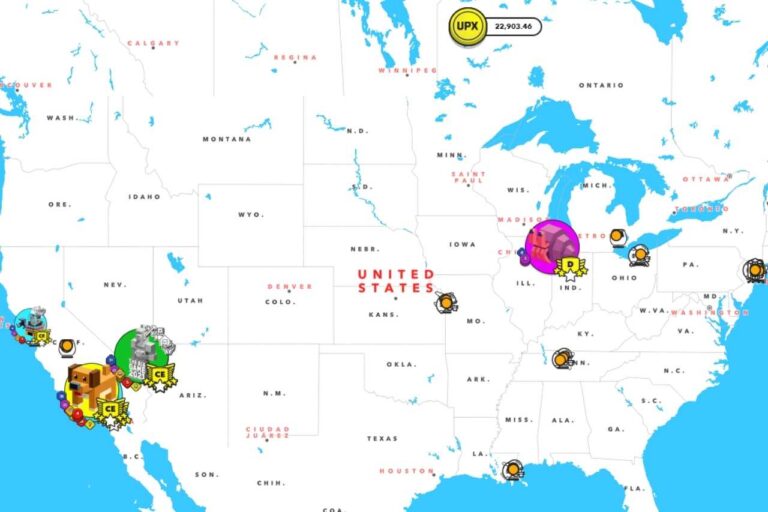Utility NFT Explained
Utility NFTs are non-fungible tokens that are not transferable, but rather are linked to a single owner. NFTs have several uses, such as granting access to content or a specific building. In this article, we’ll explore some of the more interesting uses for NFTs. And, we’ll show you how to convert your credit or debit card into a NFT. You can even convert your old card into an NFT and access it via your phone.
NFT is a non-fungible token
While a simple JPEG is worth just pennies, the new cryptocurrency utility NFT could be worth more than that. These non-fungible tokens have potential to change the way we use digital currency in a number of ways. They offer a unique way to reward supporters, provide community access, and even give out royalty payments. Here’s how utility NFTs can change the way we view digital currency.
The value of a utility NFT is based on what someone else is willing to pay for it. Just like stock prices are influenced by fundamentals, technicals, and economic indicators, a utility NFT is determined by demand and investors. But, because it is non-fungible, a buyer might be willing to pay less than the original price. The buyer could then be left with an NFT that no one else wants to buy.
In addition to cryptocurrencies, NFTs are also used in metaverses. Some popular metaverses offer a way to own virtual land as a non-fungible token. This allows users to trade assets easier. Non-Fungible Tokens are an exciting element of the crypto world because they combine ownership with utility. In the future, we may see a combination of these. Until now, NFTs have mainly been used as a method for establishing community and exchanging digital assets.
As more companies start to use utility NFTs as a means of paying for exclusive content, their secondary transaction values have continued to rise. Brand loyalty is a key reason for these increases. The first NFT project was launched in June by Twitter. It saw thousands of bids on the first day and huge gains within a week. Twitter minted 20 pieces of its Fury Twitter logo and the initial buyers bid upwards of $56k for each one.
It can be verified to a single owner
Utility NFTs can be verified to merely one owner, and the token is only valid as long as the single owner owns it. This type of cryptocurrency makes it easy to verify an owner’s identity and transfer a token between owners. NFTs are commonly used as tickets to real world events, merchandise, and other projects. Because of this, they are an ideal way to facilitate cross-border payments.
NFTs are digital certificates or tokens that are stored on a decentralized ledger, commonly known as the blockchain. These cryptocurrencies use a system called smart contracts to transfer ownership. The smart contracts ensure that ownership is verified, resulting in a single record of transactions. Blockchain records transactions, which makes it possible to verify ownership of a utility NFT to a single owner. This technology was first used in the release of Kings of Leon’s album as a series of NFTs.
The use of NFTs for identity management is also a promising application. The technology is a great way to secure digital assets and eliminate intermediaries. This will facilitate a smoother process of transactions, reduce costs, and allow new markets to be created. It will help businesses and individuals to create and manage their digital assets. These new methods of identity management and asset verification are the most exciting aspects of this new technology.
Utility NFTs are cryptographically secured on a blockchain, making them the perfect mechanism for verifying ownership of digital assets without an intermediary. This technology will enable more user-defined digital assets, which opens up many innovative use cases. The rapid development of NFT technology is helping to spur these industries. It also allows for more personalized ownership records and allows users to track their digital assets in a secure way.
It can grant access to content
There are many benefits of utility NFTs, including the ability to unlock content that is otherwise out of reach. Conventional apps manage content through centrally controlled user accounts. However, utility NFTs allow third-party developers to extend their services to the NFT community through permissionless utilities. A decentralized network of NFTs allows users to discover new games and apps that use the same infrastructure. Utility NFTs are unique digital entities on the blockchain that represent ownership of digital content.
Utility NFTs are not only useful for content but also for insurance policies. These NFTs also allow immortalisation of music on the blockchain, bypassing agents and streaming websites. The band Kings of Leon recently released their eighth album in NFT format, which generated over USD two million in sales. The use of utility NFTs has a wide range of benefits for the music industry. The emergence of utility NFTs has opened new doors for music producers and labels.
Another major advantage of utility NFTs is that they allow for the exchange of virtual goods with physical goods. The NFTs in Bored Ape Yacht Club, for instance, offer lifetime memberships with access to exclusive games, digital merch, and VIP parties. Similarly, the VeeFriends NFT allows users to purchase books and gain access to exclusive events and lectures. Another example is the Ghetto Sharkhood NFT, which allows owners to unlock original script pages and new commentary for the movie.
A more significant utility for NFTs is the ability to grant access to content. This allows NFT holders to add value to real areas and provide transferable ownership rights. One recent example is the fashion platform which made $3 million in seven minutes by selling virtual sneakers. Utility NFTs can also grant access to content in the metaverse, a virtual world created by computer simulation. They also allow users to interact with each other in a computer-generated universe.
It can grant access to areas of a building
A utility NFT is a device that grants access to areas of a building. This device works like a key, granting a user access to areas that they have permission to access. It uses an electronic reader to grant access and can be used in a wide variety of situations. For example, NFTs can control access to computer networks and areas in a building. They are becoming increasingly common for businesses.
Another use for NFTs is in the form of mint passes. These passes give early access to mint an upcoming NFT. The first MintPass, which was issued in the Punks Comic universe, was a redemption for a MetaHero. Since then, it has expanded to other possibilities. In addition to granting access to building areas, NFTs can also grant access to gameplay areas.
The utility value of an NFT depends on its use. In addition to this, the overall value is based on the issuer’s reputation, scarcity, and speculation. Liquidity of an NFT is another important consideration. With its ability to represent anything unique and allow more flexibility, it may be a game changer in the crypto space. Utility NFTs are compatible with Web3 and dApps but are still in the early stages of product-market fit.
It can grant access to a football stadium
Many football clubs are slowly adopting the NFT technology. These tickets grant fans closer access to their favorite players and teams by connecting fans to the associated utilities. However, these cards can also have their drawbacks. A recent example is the John Terry Ape Kids FC NFTs, which saw a 90% drop in value due to trademark infringements. If your child’s football team uses these cards, they should be aware of the risk of losing the value of their tickets.
If you’re thinking of investing in NFTs, make sure to choose one that is flexible. This way, you can choose the number of tickets you want and pay at the same time. Depending on your budget, you can use the NFTs to get a better seat at a football stadium. Alternatively, you can choose to receive a one-time discount for a specific season ticket.
A special collectible NFT could be issued to fans who own season tickets or to brand sponsors. It could also offer fans virtual locker room access and behind-the-scenes perks. Currently, ticket sales and sponsorships are the biggest revenue streams for most sports. The value of utility NFTs is far beyond digital art. Many of the existing sports NFT projects focus on mass distribution and offering the best value to the NFT holders.https://www.youtube.com/embed/M0wTH5kzxU8




